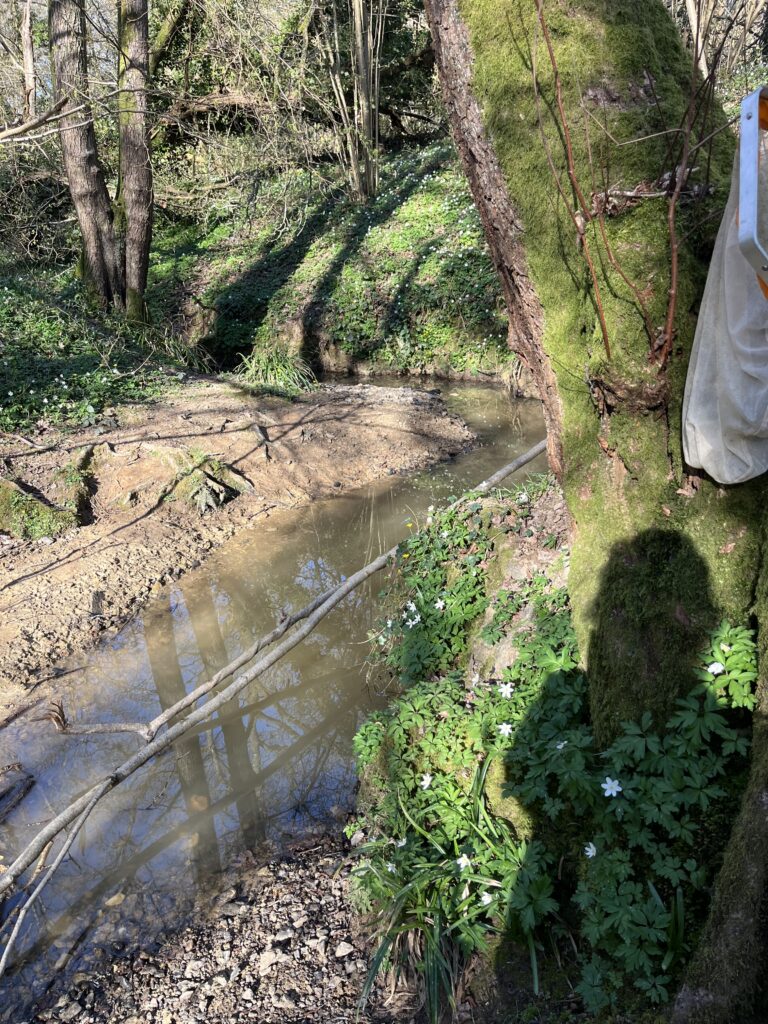CRANLEIGH FLOOD FORUM NEWS UPDATE, 18 MARCH 2018
Many of you attended the third Cranleigh Flood Forum on 9 March, hosted by Anne Milton MP, when discussions continued on sewer and surface water pipe misconnections, concerns about the sewage treatment works and Cranleigh Waters, questionable planning decisions by the Joint Planning Committee (JPC) of Waverley Borough Council and other matters.
However the asbestos cement (AC) drinking water pipes and the very controversial approval of the Thakeham homes site in Elmbridge Road dominated the meeting.
We, Cranleigh Civic Society, reported that, just the previous day, we had a high level meeting with a leading Insurer to discuss the insurance implications of both these very real concerns.
This Insurer confirmed what we had heard from a leading Insurer of County, Borough and Town/Parish Councils – this is that, except for a few specialist schemes, all UK Public and Products Liability policies have a total asbestos exclusion. This follows the inhaled asbestos disaster, where claims are still being made, and which is reported to have cost Insurers worldwide $100 billion – and which nearly brought Lloyd’s of London to it’s knees in the 1990s.
So, at the meeting, the we urged Waverley and Thames Water to check their own policies as, if they have no asbestos cover, and asbestos fibres in eroding and bursting drinking water pipes (which make up 29.6% of Cranleigh’s pipes) do lead to ingested asbestos fibre health problems, they could well have to finance both the claims and legal costs out of their own fund – for decades.
Of course, Cranleigh is not alone – this is a matter of concern and receiving attention throughout the World including Australia, New Zealand, the United States and Europe so we continue to monitor activity worldwide.
Whilst we are pleased Thames Water are starting to replace Cranleigh’s AC pipes, our aim is to seek a cessation of all connections of new housing to the drinking water system until all the AC pipes have been replaced with new, safe plastic pipes. Failure to do so would mean that, as new homes are connected to the existing system, it would result in the flow having to be increased which would lead to faster erosion and more frequent bursts.
We also discussed with the Insurer the decision by Waverley to grant permission for the building of 54 houses on a flood plain – an area which regularly floods seriously with the last occasion being as recently as December 2013.
The JPC ignored the detailed evidence submitted by us and, instead, relied on the report provided by consultants engaged and paid by the applicant, Thakeham Homes. Their representative was even allowed to sit at the planners table – very unorthodox.
Prior to the meeting on 5 October 2017, a member of the JPC submitted his flood risk evidence to the Chair of the JPC but it was ignored. That same member tried to have his evidence considered at the meeting but he was shouted down by the Chair and told to shut up.
The Lead Local Flood Authority (LLFA) is Surrey County Council and the Flood Risk Management Strategy and Partnerships Team Leader (who attended the Flood Forum) confirmed to a Councillor, in an email dated 21 February 2018, that when considering building on this type of site, the planning “process is in part reliant on robust and accurate feedback from the community” but the JPC chose to ignore this guidance and the detailed evidence, including photos, submitted by Cranleigh Civic Society.
So there is the terrible prospect of families buying new homes built on a flood plain and which are highly likely to flood, with all the dire consequences, because of a seriously flawed planning decision.
When, at the meeting last week, we explained this situation to the Insurance Company it was made very clear that obtaining flood insurance on this site would be very difficult if the Insurer agrees that the evidence presented to them is sound. Top UK Insurers do not rely on the flood maps available to all on websites – they have invested in their own exceptionally detailed flood mapping, so detailed that they can have separate risk classifications for individual houses. They pay particular attention to new housing developments including local knowledge, nearby postcodes, topography and using the very latest technology.
Perhaps the unavailability of flood insurance from reputable Insurers may stop innocent families making the worst financial decision of their lives?
Anne Milton was of the view that a meeting should be arranged with Thakeham Homes, attended by all the relevant organisations, to explain the very real issues with developing this site, and undertook to put this in motion.
Needless to say we welcome this initiative by our MP but will Cranleigh Civic Society be invited? We sincerely hope so!




Will there be any investigation do we think in to what it was that motivated the JPC to look so favourably upon the developer whilst ignoring factual evidence from the local community?
Hi Paul Mepham, thank you for your comment. I will pass your question on to the committee and get back to you as soon as possible.